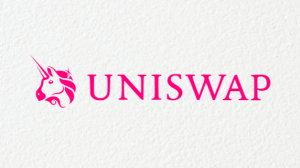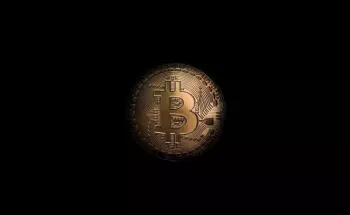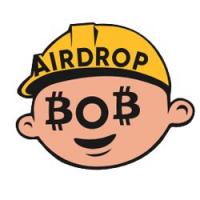The Token Features
First, let's talk about the features that are in store for the token holders. In general, most tokens offer very similar benefits. For this reason, comparing all the assets' pros and cons is paramount for anybody interested in successfully navigating the crypto markets.
The most common token features in the industry are:
- Trading fee discounts
- Passive income generation
- Voting rights for future token listings
- Airdrops
- Token Buyback/Burn Programs
- VIP service
Now let's take a closer look at what this means for the token owners.
Trading fee discounts or rebates are so ubiquitous in the industry that it actually isn't very often that an exchange token doesn't offer this feature. These discounts can range from a 1% reduction to 50% on exchange trading fees. This can make a huge difference in a professional trader's net profits over time and save him tremendous amounts of money.
The generation of Passive Income is also a common characteristic among proprietary exchange tokens. If you own a token that guarantees the distribution of a certain portion of the exchange's profits, you are entitled to your share for as long as you hold the asset. Most of the time, this income is derived from the trading fees earned by the exchange.
The Voting Rights allow the token holders to vote on future token listings on the exchange and sometimes even on other events and future developments planned. This may be very interesting for savvy investors, but it can be a bit too much for the newcomer to the crypto space. Nonetheless, it is a significant feature that decentralizes and democratizes how the exchange deals with its future development. And after all, most of us are in this space to further develop a decentralized financial ecosystem.
Airdrops are also a ubiquitous sight in the list of perks offered to token holders. These airdrops are mostly distributed according to the number of tokens held. Of course, there are exceptions; for example, it can also be that every account on the crypto exchange that meets specific criteria is also eligible for an airdrop of a newly added crypto asset.
When Token Buyback/Burn Programs are built into a cryptographic asset's smart contract, they are often viewed as one of the most enticing cryptocurrency attributes. These buyback and burn programs aim to drain the circulating supply by continuously reducing the market's number of tradable assets. This works pretty much the same way as a stock buyback by a big multinational company. This pre-planned scarcity is intended to increase the value of the remaining assets over time, which, of course, is seen as an excellent benefit for market participants with a long-term strategy. The most common target of token buyback/burn programs is to finally cut the asset's initial max supply in half.
Last but not least, the VIP-Service is specially designed for the most dedicated trader/owner of a given asset. These services can include even bigger discounts on trading fees, higher daily withdrawal limits than regular traders, and dedicated one-on-one customer service with a faster response time to help you with your imminent questions and problems. But of course, the offers can far exceed the advantages mentioned above.
The Token
Now that you know the most common functions and advantages of these Crypto-Exchange-Token, we can go straight to our selected token.
First, there is the Binance BNB token. The BNB token started out as ERC20-based crypto, but the token was swapped into a proprietary blockchain solution from Binance. The BNB token is the native crypto token of the world's largest crypto exchange, which is also reflected in its rapid price increase since its roll out in 2017. The main advantages of the token are the fee discounts on the platform granted to the holder. The frequently occurring airdrops of newly added crypto assets on the exchange are distributed most of the time according to the amount of BNB someone is holding. Besides, you can use the token to vote on future exchange listings of new projects. Finally, Binance has integrated a token buyback and a burn program to reduce the circulating supply by 50%.
Binance
Binance Coin on CoinGecko
Then there is the CRO token from Crypto.com. CRO started as MCO (Monaco) in 2017 before initiating a token swap in 2020. This token offers the holder the classic reduction in trading fees, but the most compelling aspect of its offerings is the overwhelming application of staking possibilities. Depending on the amount of CRO held/staked on the platform, you will be ranked in Crypto.com's rewards program. The higher you are, the more advantages and benefits you can enjoy on the platform. An extraordinary offer for many is the coveted crypto debit card. This allows the holder even more benefits and bonuses. Actually, they offer so many perks and benefits to their ever-growing community, you have to take a look at yourself.
Crypto.com
CRO Token on CoinGecko
Kucoin's KCS token is another very popular Crypto-Exchange-Token. Their trading fee discounts range from just 1% to a whopping 30%, depending on the number of tokens held on the platform. It enables its holder to vote on future token listings on the exchange. You are entitled to a portion of the daily accumulated trading fees as passive income distributed in KCS. The more tokens you have, the higher you can move up the VIP levels. This way, you are granted access to individual investment advice, special customer service fast passes, and much more. And just like BNB at the top of our list, Kucoin has implemented a token buyback and burn program for the KCS token to reduce its initial max. token supply by 50%.
Kucoin
KCS Token on CoinGecko
Huobi's HT Token is also a very prominent member of the Crypto-Exchange-Token Club. It offers its owners a trading fee discount of 10% to an overwhelming 50% depending on the VIP level reached. Also, regular airdrops of a newly listed token are distributed to the holders. And holders can even vote on upcoming exchange listings for new projects, allowing them to get even more of the new token if the vote cast was on the winning side.
Huobi
HT Token on CoinGecko
And finally, we come to the unicorn on our list. The UNI token from Uniswap. This token is at the center of the ubiquitous DeFi madness and has seen its price soar since its launch. Currently, Uniswap was holding a massive UNI airdrop granted to historical users of the exchange, and based on their model, more airdrops should appear in the future. Apart from that, the token allows its holder to vote on future developments in the Uniswap governance system's ecosystem. So far, this may seem a little overwhelming compared to all of the perks the other token offer, but keep in mind that Uniswap has just gone through the roof and their daily transactions are still growing steadily. So at least keep them on your radar and maybe dive a little deeper into the new and upcoming DeFi space.
Uniswap
UNI Token on CoinGecko
The Overview
Now that you have a better idea of what to look for in a Crypto-Exchange-Token, we'd like to conclude with our comprehensive list of all of the assets explained above. This way, you can compare the important numbers in one view and get an idea of what might be the right asset for you.
| BNB | CRO | KCS | HT | UNI | |
| Price | $26.11 | $0.16645 | $1.19436 | $4.92898 | $6.49928 |
| Market cap. | $3,86B | $3.35B | $96.42M | $1.04B | $629.56M |
| Circulating Supply | 147,883,948 | 20,368,949,771 | 80,728,394 | 233,370,544 | 148,624,058 |
| Protocol | Binance Chain | ETH | ETH | ETH | ETH |
| Trading Fee Discount | Yes | Yes | Yes | Yes | |
| Passive Income | Yes | Yes | |||
| Vote for Listings/Governance | Yes | Yes | Yes | ||
| Airdrops | Yes | Yes | Yes | Yes | |
| VIP-Service | Yes | Yes | Yes | ||
| Staking | Yes | Yes | |||
| Token Buyback / Burn | 20% of exchanges quarterly net profit is burned | 10% of exchanges net profit is burned | 20% of exchanges revenue used for buyback |
Similar Articles

Neo (formerly Antshares) was founded by Da Hongfei and Erik Zhang in 2014, followed by the Mainnet launch in October 2016. The vision of building a “smart economy” was developed with the official rebrand to Neo in June 2017.

Stellar was co-founded by former lawyers Joyce Kim and Jed McCaleb in 2014. Jed McCaleb is also the founder of the now-defunct Mt. Gox exchange and the co-founder of Ripple. Both Stellar and Ripple are payment networks that initially used the same protocol.

Since the last major cryptocurrency bull run in 2017, the global ICO scene exploded. And with it came a plethora of fake crypto and blockchain projects, all with the goal of getting rich while ripping off unsuspecting customers.

Every day new cryptocurrencies are released on the market with different goals. Unfortunately, you can lose the overview fast. We would like to be helpful here and want to explain to you the different types of cryptocurrencies.






